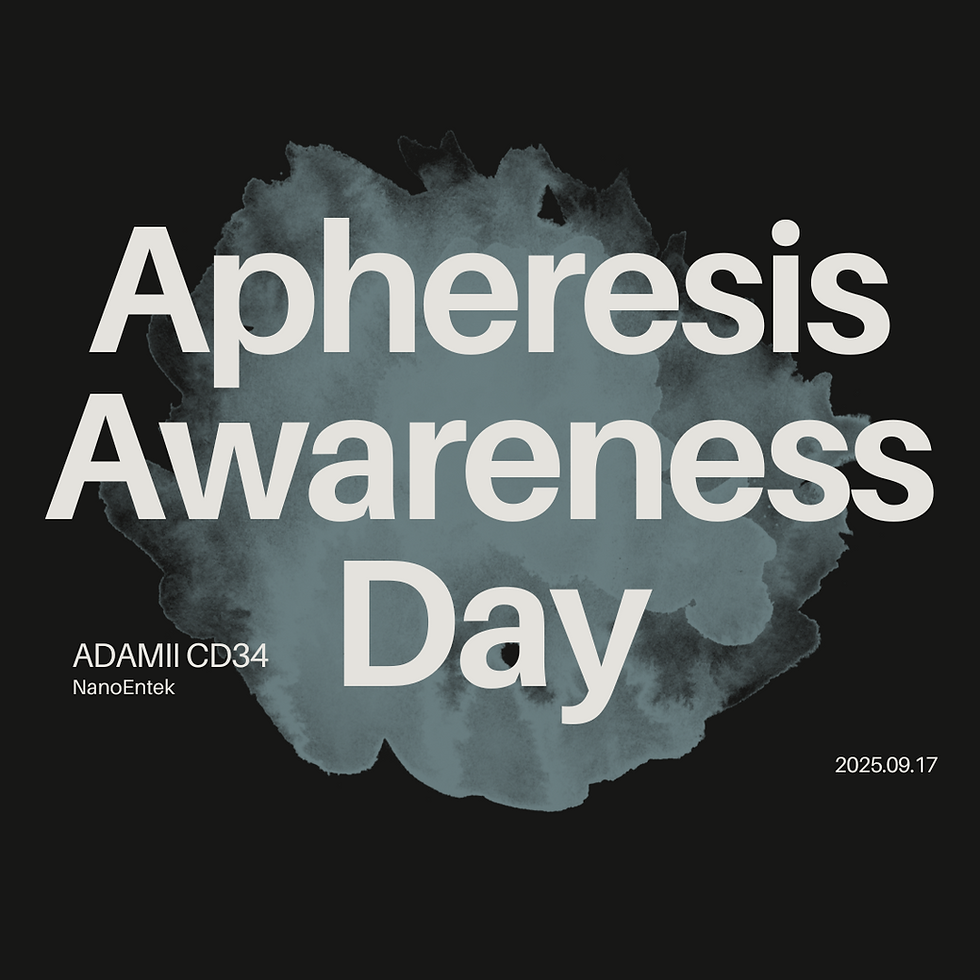World Cancer Day
- NanoEntek

- Feb 4
- 1 min read
February 4th marks World Cancer Day, a global initiative to raise awareness about cancer and its impact on the world population. The day is led by the Union for International Cancer Control (UICC), an organization founded in 1933 and based in Switzerland, dedicated to supporting the global cancer community.
According to WHO data from 2022, the most common cancer worldwide is lung cancer, accounting for 12.4% of cases across both genders. Breast cancer follows at 11.5%, primarily affecting women, while colorectal cancer ranks third at 9.6% of cases.
In 2022, an estimated 20 million cancer cases were reported globally, and this number is expected to rise to 32.6 million by 2045.
To combat cancer, ongoing research is focused on developing effective treatments. Some key studies involving cancer cells include:
In vitro studies – Cancer cells are cultured in a controlled laboratory environment to test drug efficacy before progressing to animal or human trials.
Preclinical development – This stage assesses the safety, effectiveness, and toxicity of potential treatments, often involving animal testing to evaluate tumor growth responses.
Organoid studies – A popular method where cancer cells are grown in 3D structures, closely mimicking real tumors to study cancer behavior and treatment responses more accurately.
Continuous research and innovation remain crucial in the global fight against cancer.
Reference:




Comments